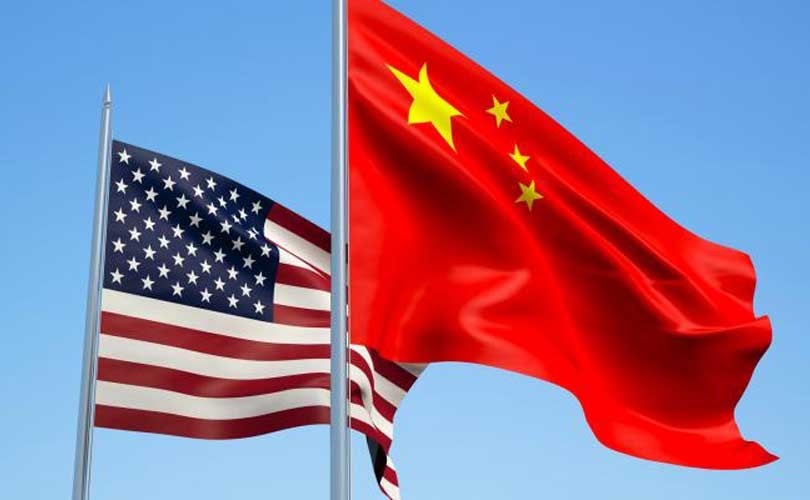The top US trade negotiator on Tuesday said that new tariffs on Chinese-made consumer goods including cell phones, toys and video game consoles would be delayed until December 15.
It’s the latest turnaround on tariffs for President Donald Trump, who has repeatedly dangled threats to ratchet up import duties on goods from China and other countries, including Mexico, as leverage in negotiations.
Trump, who is campaigning for reelection in part on his China trade war, said the move was designed in part to avoid any pain for consumers heading into the holiday season.
“What we’ve done is we’ve delayed it so they won’t be relevant in the Christmas shopping season,” Trump told reporters en route to western Pennsylvania. “Just in case they might have an impact on people.”
The move comes after a phone call between US Trade Representative Robert Lighthizer, Treasury Secretary Steven Mnuchin and top Chinese negotiator Liu He in which the parties agreed to pick up negotiations by phone within two weeks, according to a statement from the Chinese Commerce Ministry. There was no mention of whether negotiators would meet in person next month in Washington as previously scheduled.
Trump and aides have been spooked by the markets’ turbulence for the past several days and the President had been encouraging officials to find ways to turn it around as markets have continued to slide.
In his comments to reporters, Trump said his negotiators had a positive call with their Chinese counterparts, and that “they would really like to make a deal.”
The President also made sure to note that the stock market — his favorite measuring stick — was “way up” for many reasons, including the tariff news.
The US announcement immediately sent stocks surging, a sign of how heavily the ongoing trade war is weighing on markets. Rising concerns about a global slowdown contributed to the decision last month by the Federal Reserve to cut interest rates.
Last year, Trump imposed tariffs on about $250 billion in Chinese-made goods, targeting industrial materials and components.
He said earlier this month that he would add a 10% tariff on an additional $300 billion of Chinese-made products on September 1, which would effectively put a tax on all Chinese goods coming into the United States.
“Trade talks are continuing, and during the talks the U.S. will start, on September 1st, putting a small additional tariff of 10% on the remaining 300 billion dollars of products coming from China into our country,” he tweeted at the time.
The tariff threat provoked warnings from US companies that costs would be passed on to consumers. The December delay would mean a tariff hike right before Christmas, but long after holiday items have been imported into the US.
The Office of the US Trade Representative said in its statement Tuesday that it would also exclude certain products based on health, safety and national security reasons from either list.
Some goods will still be hit with the 10% tariff on September 1, including some food items, ranging from peanuts to cheese and meats. Some gloves, scarves and ski boots will still get hit earlier on, as well as baseballs, footballs, ice skates and books.
More than half of the footwear imports from China remain on the September list, while the rest will be hit with tariffs on December 15, according to the Footwear Distributors and Retailers of America. While most consumer tech products — including smartphones, laptops and tablets — fell to the December list, about $52 billion worth of products will still be hit in September. That includes smart speakers, printers and TVs.
Trump has remained frustrated by the lack of China progress and with his team’s performance in handling the trade talks. Aides say the trade war with China has gone on far longer than expected, and even those with an optimistic view have said privately that they don’t expect it to be resolved soon.
Lighthizer and Mnuchin recently flew to Shanghai to meet with their Chinese counterparts about resuming the talks, but those meetings did not go well, according to people briefed on them, triggering the President to threaten the additional tariffs.
The President on Tuesday tweeted a complaint about China not buying US agricultural products, though he’s repeatedly claimed that China would resume purchases of US goods, particularly soybeans, as a condition of limiting or removing US tariffs.
“As usual, China said they were going to be buying ‘big’ from our great American Farmers. So far they have not done what they said. Maybe this will be different!” the President wrote.
By CNN








Leave a Reply
You must be logged in to post a comment.